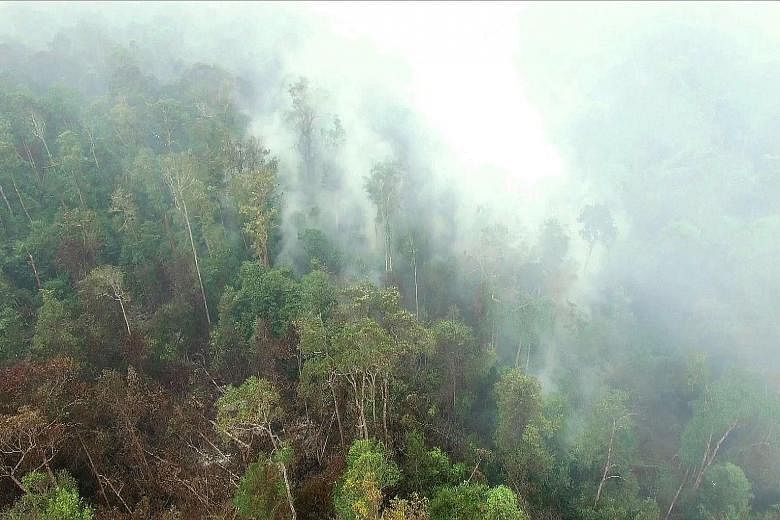By 2050, an estimated 289 million ha of forests would be cut down or burned to clear land for cultivation.
If current trends persist, 169 billion tonnes of carbon dioxide will be added to the atmosphere by then, says the Washington-based Centre for Global Development.
Since 1990, the Earth has lost 129 million ha of forests - about the size of South Africa - and if nothing is done to stop it, it will have devastating effects on global warming and wildlife.
Deforestation takes place when land is cleared for agriculture or other economic reasons, and the slash-and-burn method is by far the cheapest way to clear land.
In Indonesia - one of the world's biggest producers of paper and palm oil - almost half the deforestation is attributed to palm oil, paper and logging companies.
Trees and forests act as carbon sinks to mitigate the effects of climate change as they help to offset the amount of carbon dioxide - a main greenhouse gas - released into the atmosphere.
The United Nations Food and Agriculture Organisation has estimated that the total carbon emissions from forests decreased by more than 25 per cent between 2001 and 2015, mainly due to a slowdown in global deforestation rates.
Deforestation also harms wildlife which depend on trees for food and shelter.
According to the World Wide Fund for Nature, about 80 per cent of the documented species globally can be found in tropical rainforests.
The forest fires in Indonesia have set ablaze the homes of wild orang utans, tigers and many more animals that depend on the forests.
Drone footage released recently showed smoke blanketing the Gunung Palung National Park, described by environment group Greenpeace as a major reservoir of biodiversity in West Kalimantan, Indonesia.
Earlier, in July and August this year, there were widespread fires across Tesso Nilo National Park in Riau, Sumatra, a "vital tiger habitat", said Greenpeace.
"It is not what is happening this year that will cause damage to the ecosystem," said Dr Seck Tan, a research fellow at the Centre on Asia and Globalisation, Lee Kuan Yew School of Public Policy.
"Rather it is the accumulated deforestation that has resulted in the loss of biodiversity as well as (imbalances) in the ecosystem."
Carolyn Khew

